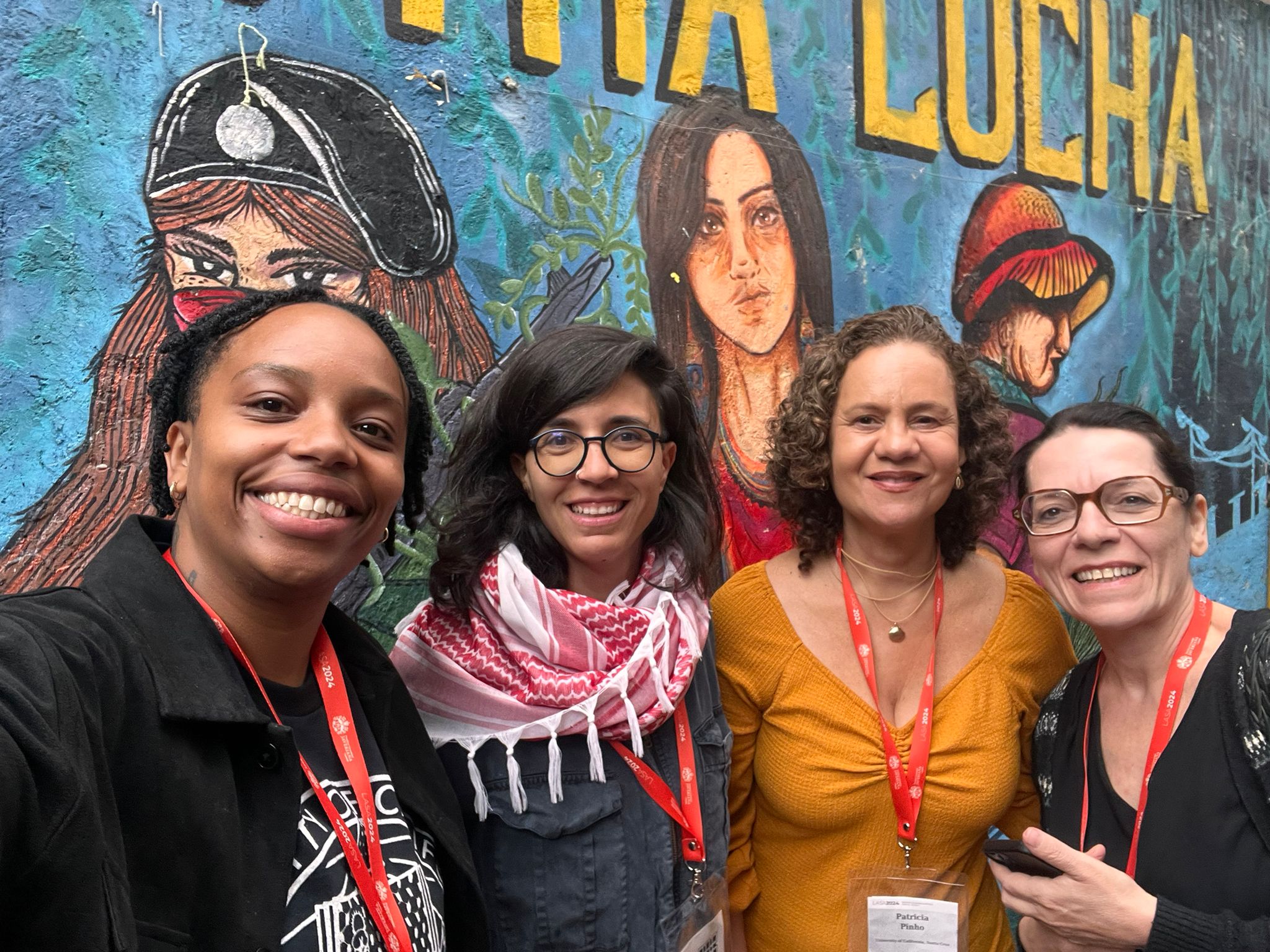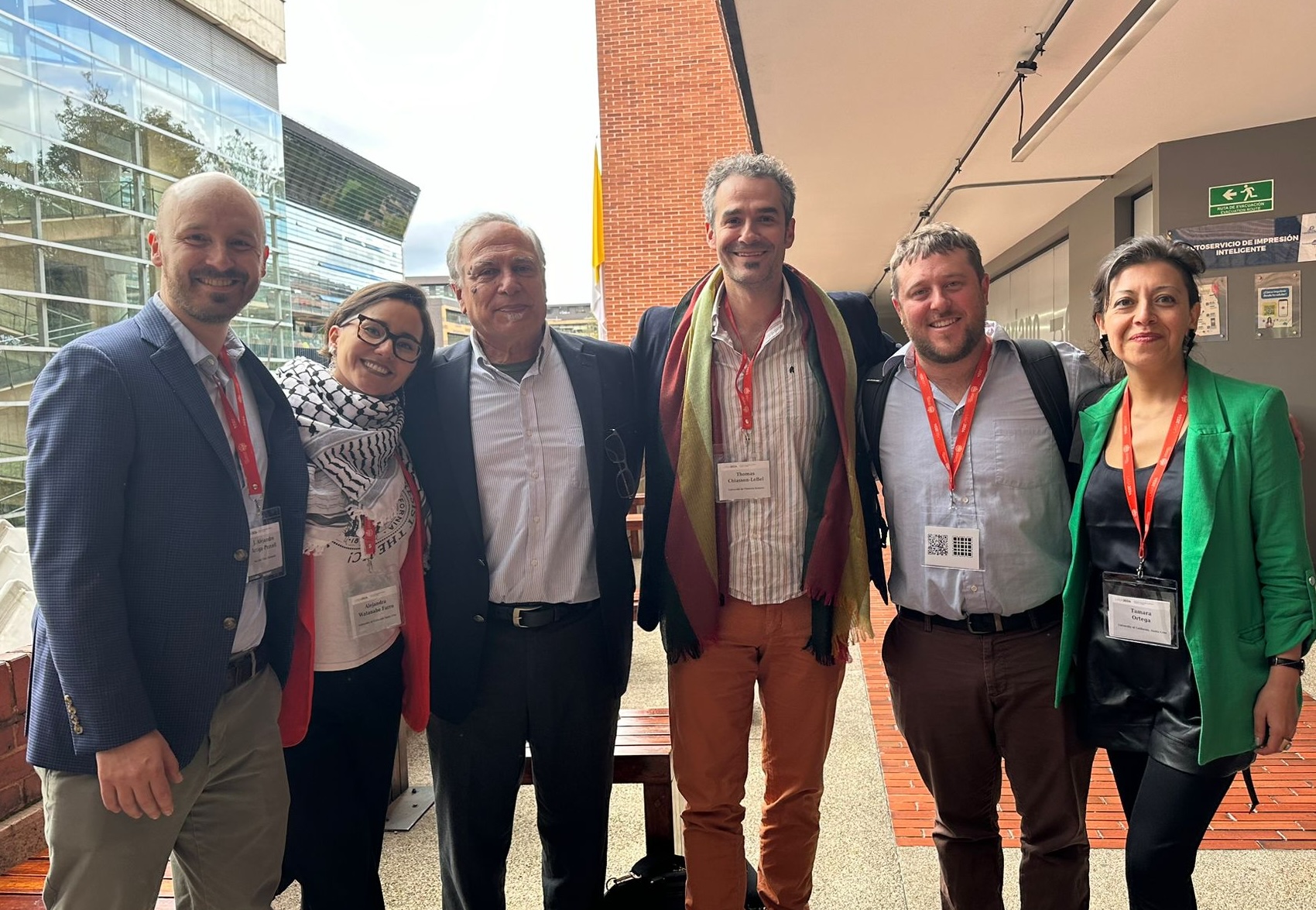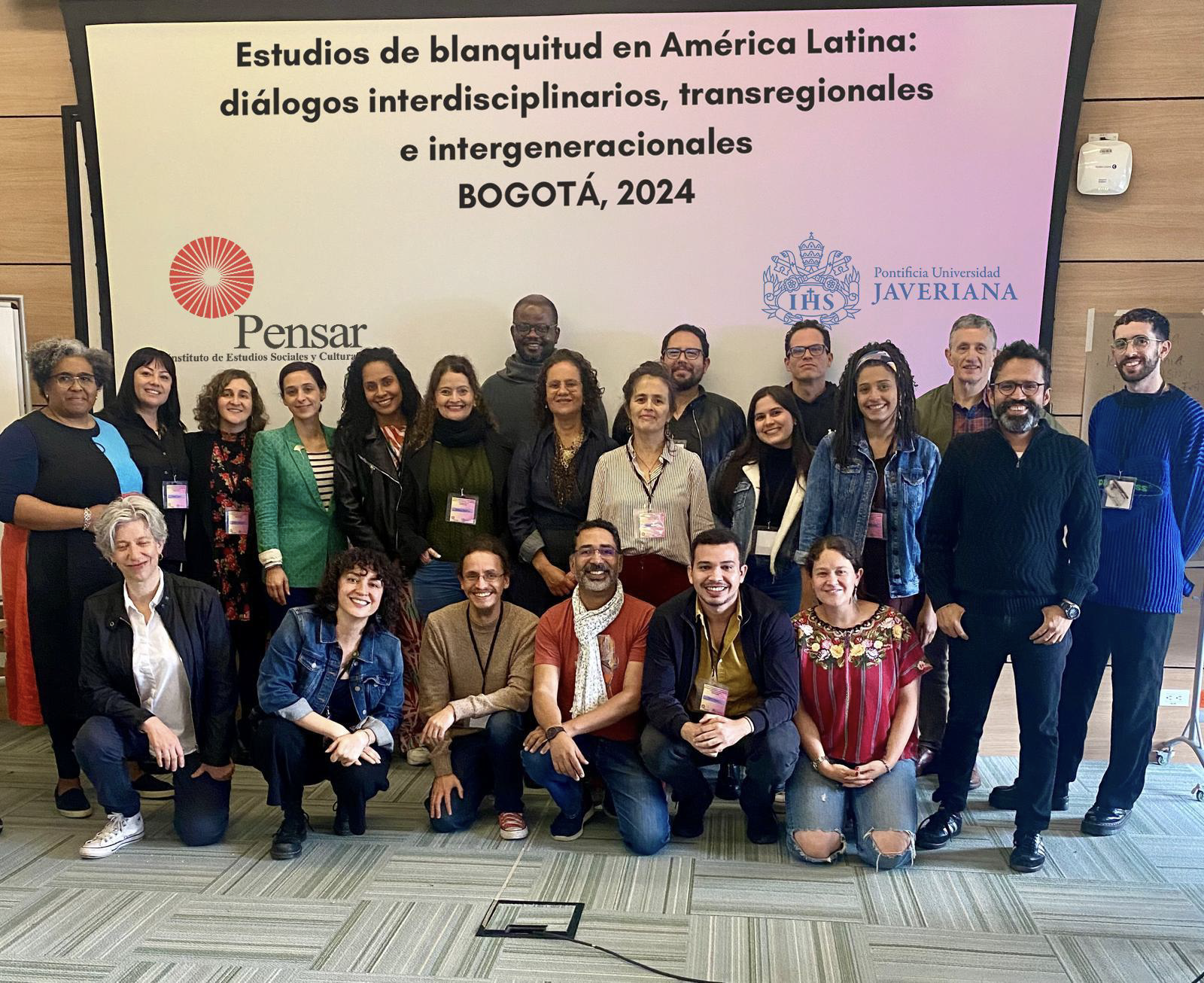In June 2024, faculty and doctoral students from the Department of Latin American and Latino Studies (LALS) attended the Latin American Studies Association (LASA) Congress - the largest global organization for Latin American studies- in Bogotá, Colombia. Themed "Reaction and Resistance: Imagining Possible Futures in the Americas," this international event provided an excellent platform for our community to present our research, engage with scholars from across the world, and represent UCSC on a global stage.
 This year, participants from the LALS community contributed to several thematic clusters, showcasing a diverse range of topics. These presentations sparked engaging discussions and allowed our doctoral students to receive valuable feedback on their work. The LASA conference was a great opportunity for graduate students to network with leading authors and researchers. These interactions laid the groundwork for future collaborations and academic partnerships, strengthening our community's ties to scholars worldwide. Overall, the conference was a highlight for the LALS department, offering an inspiring space for both faculty and students to exchange ideas and build relationships that will shape their academic careers.
This year, participants from the LALS community contributed to several thematic clusters, showcasing a diverse range of topics. These presentations sparked engaging discussions and allowed our doctoral students to receive valuable feedback on their work. The LASA conference was a great opportunity for graduate students to network with leading authors and researchers. These interactions laid the groundwork for future collaborations and academic partnerships, strengthening our community's ties to scholars worldwide. Overall, the conference was a highlight for the LALS department, offering an inspiring space for both faculty and students to exchange ideas and build relationships that will shape their academic careers.
LALS Assistant Professor Justin Perez presented the paper "After the ‘End of Aids’: How HIV Prevention Transformed Queer Social Relations in Urban Amazonian Peru" in the panel "Peopling Health in Peru: Care, Collective Resistance, and Ethnographic Approximations towards Health for All," which he organized.
LALS doctoral candidate Boyeong Kim presented the paper “Models, Miracles, and Memories of (Under)Development: Memory Work and Belonging in South Korea and Chile,” exploring transpacific memory politics holding up gendered figures in celebrating national economic achievements.
LALS doctoral candidate Bree Booth presented the paper “Robar y Seducir: The Case of Jose Eusebio Rodriguez,” which analyzes a criminal case from 1803 in Colombia related to an enslaved man accused of robbing, seducing, and kidnapping Indigenous girls and women from Noanama and surrounding areas.
 As members of the cluster "Researching and Resisting Brazil's Reactionary Wave," LALS Professor Patricia Pinho served as discussant in the panel "Genealogias da Branquitude na América Latina" and Marina Segatti, Ph.D. Candidate in Feminist Studies with a designated emphasis in Latin American and Latino Studies, presented “From Memory to Action: Marielle Franco's Impact on Brazil's Political Landscape” in the panel Defending Rights and the Broadening of Political Representation.
As members of the cluster "Researching and Resisting Brazil's Reactionary Wave," LALS Professor Patricia Pinho served as discussant in the panel "Genealogias da Branquitude na América Latina" and Marina Segatti, Ph.D. Candidate in Feminist Studies with a designated emphasis in Latin American and Latino Studies, presented “From Memory to Action: Marielle Franco's Impact on Brazil's Political Landscape” in the panel Defending Rights and the Broadening of Political Representation.
Sponsored by LASA’s Culture, Power, and Politics section, members of the Extractivism and Society Research Cluster (E&S) organized a panel titled, “From Disaster Extractivism to Eco-Extractivism? Past, Present, and Future Forms of Colonialism.” Professor Fernando Leiva presented his latest work on "Eco Extractivism in the Era of the Capitalocene," and LALS doctoral candidate Alejandra Watanabe Farro presented her paper, “Discursive Geographies of Extraction: Towards a Transdisciplinary Understanding of Critical Mineral Extraction for a Green Energy Transition.” The session was moderated by Tamara Ortega (Politics, UCSC).
Immediately before the official start of LASA Congress, E&S cluster members held their annual retreat in Bogotá to evaluate past work and adopt a new 2024-2025 plan of action, a more flexible organizational model. These plans are already bearing fruit, as on its July 17 session, the cluster welcomed new members Lorena de la Puente (UCLA), Leandro Vergara (UOF), and Jessica Coyotecatl (USB).
 Following the LASA conference, Professor Pinho co-organized the workshop “Studies of Whiteness in Latin America: Interdisciplinary, Transregional, and Intergenerational Dialogues" at Universidad Javeriana in Bogotá, Colombia. Funded by the Wenner-Gren Foundation, this three-day international workshop brought together a group of twenty-two scholars, based in Colombia, Mexico, Brazil, Chile, the US, and the UK, whose research is at the forefront of the study of whiteness and racial privilege in Latin America. Participants discussed theoretical and methodological issues as well as challenges and solutions unique to the study of whiteness in the region and outlined a collective research agenda for co-authoring publications, co-teaching courses, and collaborating on research projects of various scales.
Following the LASA conference, Professor Pinho co-organized the workshop “Studies of Whiteness in Latin America: Interdisciplinary, Transregional, and Intergenerational Dialogues" at Universidad Javeriana in Bogotá, Colombia. Funded by the Wenner-Gren Foundation, this three-day international workshop brought together a group of twenty-two scholars, based in Colombia, Mexico, Brazil, Chile, the US, and the UK, whose research is at the forefront of the study of whiteness and racial privilege in Latin America. Participants discussed theoretical and methodological issues as well as challenges and solutions unique to the study of whiteness in the region and outlined a collective research agenda for co-authoring publications, co-teaching courses, and collaborating on research projects of various scales.
